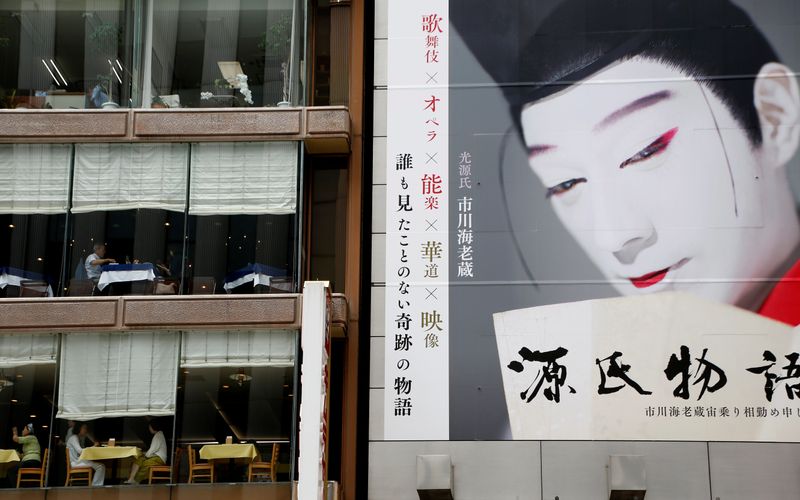TOKYO (Reuters) - Japan's services sector returned to growth in January, as new business expanded at the fastest pace in seven months in a sign consumers may be gradually adjusting to a sales tax hike that had chilled spending.
While it is early days, the uptick will be welcome news for the Bank of Japan as it pins its hopes on a domestic demand-led economic recovery even as global policymakers fret over a new threat to world growth from China's coronavirus epidemic.
The final seasonally adjusted Jibun Bank Japan Services Purchasing Managers' Index (PMI) rose to 51.0 in January from a more than three-year low of 49.4 in December, but below a preliminary reading of 52.1.
It marked the fastest pace of growth since last September, and was above the 50.0 threshold that separates contraction from expansion.
The PMI data showed a jump in new business to its highest since June last year, and stronger service sector employment and higher selling prices.
"Stronger growth in demand and employment instill some confidence that short-term economic prospects are not as bad as feared at the end of last year," said Joe Hayes, economist at IHS Markit, which compiles the survey.
"That said, business confidence dropped to a 29-month low in January, with concern towards the aging working population and low-growth environment restricting expectations in the year ahead."
Business expectations dropped to their lowest since August 2017, while backlogs of work remained in contraction for the second straight month, suggesting the world's third-largest economy is likely to remain under pressure for the time being.
A preliminary trade deal between the United States and China had raised hopes globally of a relenting in the pressure facing businesses worldwide, especially export-led nations like Japan.
The coming months might prove critical to the outlook as investors count the cost of China's virus outbreak.
Many analysts expect Japan's economy to have shrunk in the quarter through December last year largely due to the fallout from last October's sales tax hike, after it grew an annualized 1.8% in the third quarter.
The composite PMI, which includes both manufacturing and services, rebounded in January after seeing the fastest pace of decline since April 2014 in the previous month.
The index advanced to 50.1 from December's final 48.6, expanding for the first time in four months.
